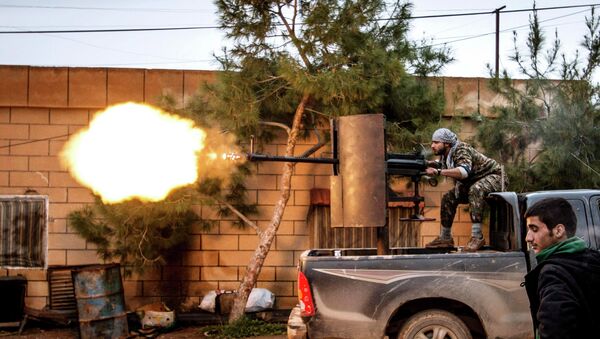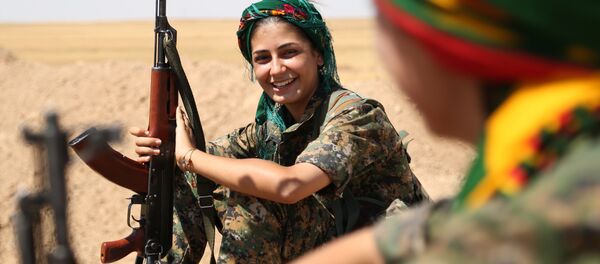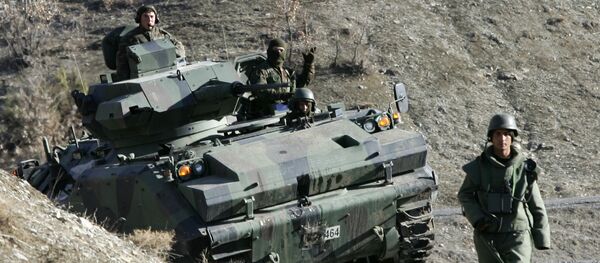For its part, Russia has long insisted that all groups, except terrorists, should take part in the intra-Syrian talks, seeing it as the only way to find a solution that would benefit the Arab country and would be genuinely backed by Damascus, as well as the opposition.
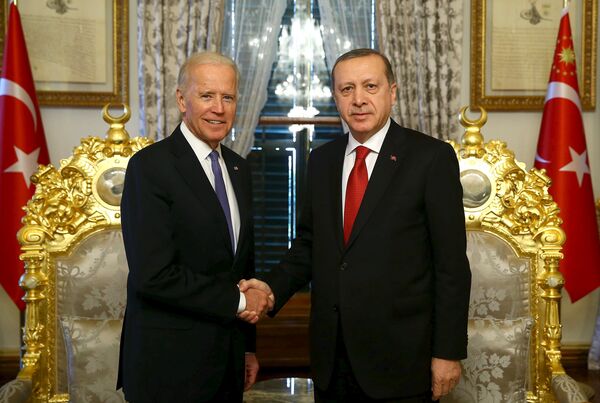
Washington seems to be making an effort to prevent Ankara from jeopardizing the talks.
Vice President Joe Biden came to Turkey on Saturday. In what appeared as a charm offensive on Biden's part, the US vice president reaffirmed that the Kurdistan Workers' Party (PKK) is "a terror group plain and simple" and hailed Turkey's anti-Daesh efforts following a meeting with Prime Minister Ahmet Davutoglu.
"We are increasingly making progress and that progress will be sped up as a result of our meeting today," Biden said, referring to the US and Turkey's "shared mission on the extermination" of Daesh.
Turkey's stance on the terrorist group that controls large parts of Iraq and Syria is not as clear, as the US vice president tried to present it. Ankara has long insisted that it is at the forefront of the anti-Daesh campaign, but has failed to deliver. For instance, it has not sealed the 60-mile stretch of border that Daesh militants and other terrorists use to smuggle weapons, supplies and fighters in and out of Syria.
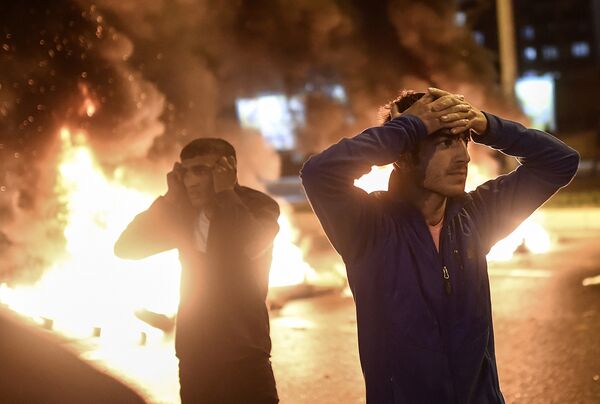
The Kurds, Turkey's largest ethnic minority, are striving for greater autonomy and recognition. The Kurdistan Workers' Party, founded in the late 1970s to promote the self-determination for the Kurdish community, is designated as a terrorist group in Turkey.

